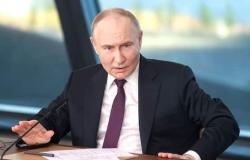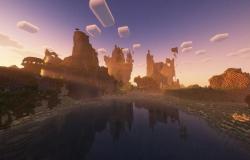Stefano Stefanini, long-time ambassador (he was also diplomatic advisor to Giorgio Napolitano and today is senior advisor of ISPI) wrote of a G7 with “a strong agenda and weak leaders”, adding that he had never seen such a disproportion evident between «the stakes and the cards available to the players». Despite everything, however, it was his conclusion, in the end the possible results were achieved.
The most discussed, and most publicized, was the green light for the plan to use frozen Russian funds in Europe and the rest of the world. As demonstrated by the furious Russian reaction (“a criminal act”), the decision hit the mark. First of all for its practical consequences: the possibility of providing aid to Kiev, with technicalities (not the seizure of assets, but the use of profits) that appear more difficult to contest on the level of international law. What also counted, however, was the symbolic meaning: more than two years after the outbreak of the conflict, the leading Western countries, amidst a thousand doubts and uncertainties, have not lost the ability to move in a united and coordinated way. For the moment, therefore, the hopes of the Kremlin (which was and continues to bet many cards on the disagreements of its de facto adversaries) have been dashed.
At the Apulian summit, however, another country was the protagonist, almost more than Russia. The guest of stone was China, which animated the leaders’ discussions for at least two afternoons. On Thursday, under the joint presidency of Giorgia Meloni and Joe Biden, the summit participants met with the leaders of a series of private industry giants (from Blackrock to Microsoft, from Eni to Enel) to talk about the Western rivals of the «Way of Chinese Silk: the American PGII (Partnership for Global Infrastructure and Investment), which alone would like to mobilize investments of 600 billion dollars in developing countries, the Global Gateway, adopted at European level and the Mattei Plan developed by Italy. The final communiqué of the session underlined the desire to increase “coordination between projects, to maximize their collective impact”. The paradox is that China was named only to exclude that the three initiatives were aimed against it. A pitiful lie given that the influence over the countries of the Global South is at stake (ranging from Africa to the Indo-Pacific region): in 2013 Beijing, with its Belt and Road Initiative, moved first , now the West wants to make up for lost time (and ground).
The name of China, however, resonated loud and clear in yesterday afternoon’s session, where the other issues that divide the most industrialized countries from the Asian giant were examined: the under-the-table aid to Russia but also the Chinese “production overcapacity”, result of a subsidy policy coordinated at state level. “We do not want to close our market”, said the President of the EU Commission Ursula von der Leyen, “and we welcome competition, as long as it is based on fairness and equal conditions”. The format chosen for the summit, with the presence of around fifteen BRICS countries and the area that would once have been called the Third World, also fell within the context of the confrontation between autocracies and the West. The starting point was the desire to show interest and willingness to cooperate. To receive support also and above all on the war in Ukraine.
The task has become more difficult with the resurgence of conflict in Gaza (more
topic that was the subject of summit talks). Much of the Global South is resolutely pro-Palestinian. And more and more often the accusation that Kiev’s supporters hear is that of using double standards.





